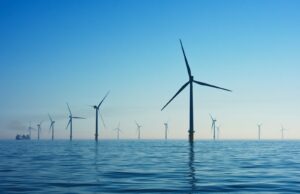Ship traffic dropped significantly during the first few months of the Covid-19 pandemic, according to a new study published in the journal Nature Communications.
Researchers at the University of Exeter used a satellite vessel-tracking system to compare ship and boat traffic in January – June 2020 with the same period in 2019.
They found that there were decreased ship movements in 70% of the 124 countries included in the study. As expected, countries with stricter Covid-19 restrictions saw sharper declines in ship movements.
Global declines peaked in April 2020, but by June – as Covid restrictions were eased in many countries – ship movements began to increase.
The largest and longest-lasting reductions were in passenger vessels, while tankers, cargo vessels and fishing boats were least affected.
Dr David March, lead-author of the study from Centre for Ecology and Conservation on Exeter’s Penryn Campus in Cornwall, said: ‘As lockdowns came into force, we heard stories and began to see early research findings that suggested reduced boat movements had allowed some marine ecosystems to recover.
‘There were reports of clearer water in Venice’s canals, and a study showed a reduction in underwater noise at Vancouver.
‘The long-term trend is for increased global ship movements, so a modest decrease may represent a more significant reduction compared to the amount of traffic we would otherwise have seen.’
Professor Brendan Godley, who leads the Exeter Marine research group, added: ‘The effects of ships and boats – from noise and pollution to fishing and collisions with animals – have a major impact on marine ecosystems across the world.
‘Our study aimed to measure the impact of Covid-19 on this traffic, and we are continuing to monitor this as the restrictions on human activity continue to change.
‘Quantifying the changes in human activities at sea paves the way to research the impacts of Covid-19 on the blue economy and ocean health.’
Photo Credit – Pixabay
















